Search
Did you mean: Nile?
Remove Ads
Advertisement
Summary 
Loading AI-generated summary based on World History Encyclopedia articles ...
Search Results
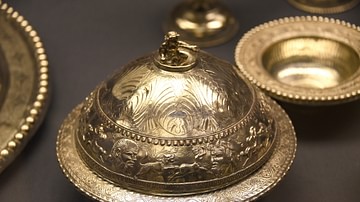
Definition
Silver in Antiquity
Silver had great value and aesthetic appeal in many ancient cultures where it was used to make jewellery, tableware, figurines, ritual objects and rough-cut pieces known as hacksilver which could be used in trade or to store wealth. The metal...
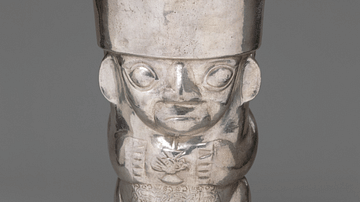
Article
The Silver of the Conquistadors
The Spanish conquistadors might have gained a lasting reputation as the great gold-seekers of history, but they were actually far more successful in acquiring silver. Over 100 tons of gold were extracted from the Americas from 1492 to 1560...

Interview
Interview: Living in Silverado: Secret Jews in the Silver Mining Towns of Colonial Mexico
Professor Emeritus David Gitlitz is one of the world’s leading experts on Jewish-Catholic interactions in Iberia and the Americas. While initially drawn to the literature of the Spanish Golden Age as a student at Oberlin and Harvard, the...
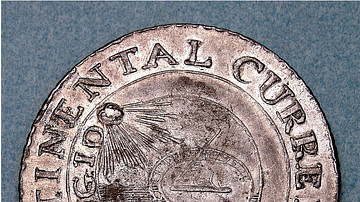
Image
Silver Continental Dollar, 1776
A silver Continental dollar, minted in 1776. This currency is thought to have been designed by Benjamin Franklin and minted by Elisha Gallaudet at a private mint in Freehold, New Jersey. This early run of coins was produced for approval...
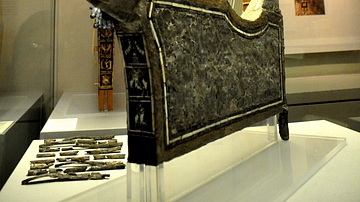
Image
Silver Lyre, Ur, Mesopotamia
This lyre was found in the 'Great Death-Pit', one of the graves in the Royal Cemetery at Ur. From Ur, southern Mesopotamia, Iraq. Early dynastic period, 2600-2400 BCE. (The British Museum, London)
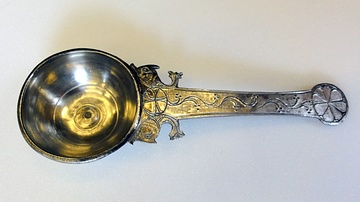
Image
Silver Ladle, Hoxne Hoard
A gilded silver ladle from the Hoxne Hoard. Discovered in Suffolk, in the east of England in 1992 CE, the incredible collection contains 14,865 late-4th and early-5th century CE Roman gold, silver and bronze coins, and 200 items of silver...
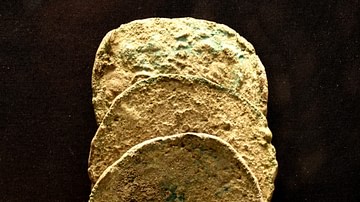
Image
Silver Ingots from Syria
A wide-spread silver trade existed in the Mediterranean before coins were introduced. Silver coins continued to follow these routes, and mixed hoards of ingots and coins were buried across the Near East and Egypt between 550 to 475 BCE. These...
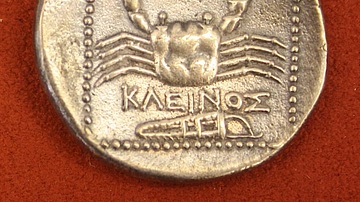
Image
Silver Tetradrachm, Kos
A silver tetradrachm from Kos, 300-190 BCE. O: Hercules, R: Crab. (Alpha Bank Numismatics Museum, Kerkyra, Corfu)
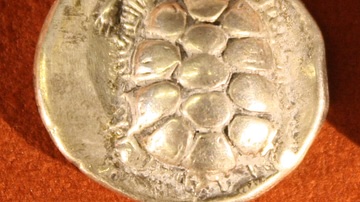
Image
Silver Stater, Aegina
Silver stater from Aegina, 4th century BCE. O: Tortoise, R: Incuse square. (Alpha Bank Numismatic Collection, Kerkyra, Corfu)
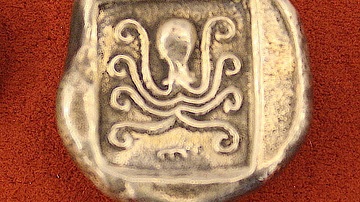
Image
Silver Tetradrachm
Silver tetradrachm from Eretria Euboea, c. 485 BCE. O: Cow, R: Octopus in incuse square. (Alpha Bank Numismatics Collection, Kerkyra, Corfu)